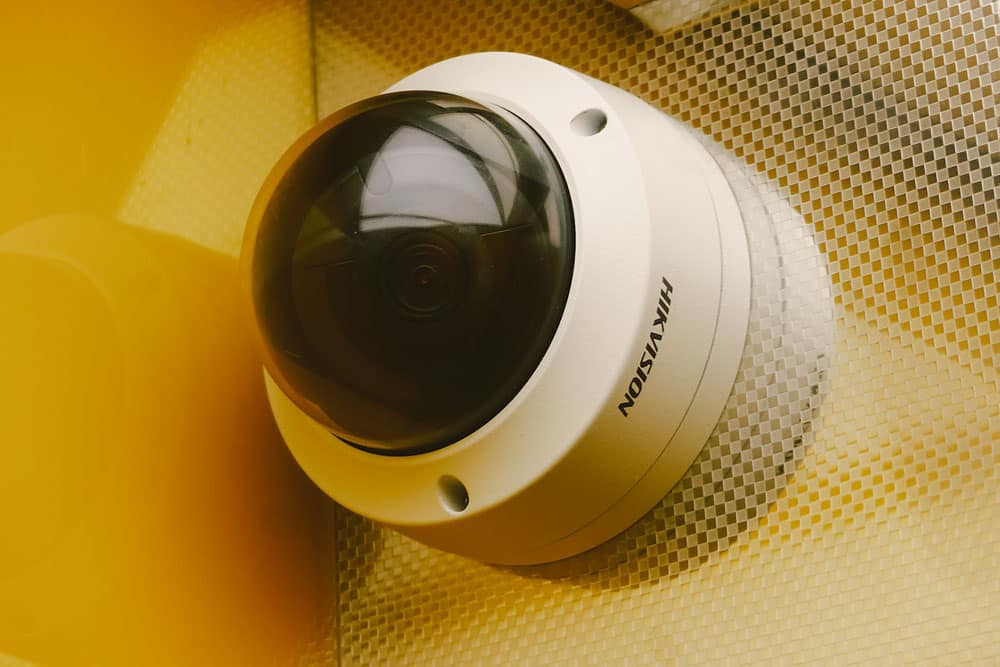
The law office of DiPiero Simmons McGinley & Bastress, PLLC in Charleston, WV explores the laws regarding video cameras in nursing homes and how they affect cases of nursing home abuse or neglect.
After learning more about care facility security camera regulations, please reach out to our office with any questions concerning your own case of nursing home abuse or neglect. We provide free case evaluations to empower families to make the best decisions for the care of an aging loved one.
Does West Virginia Law Allow Video Cameras in Nursing Homes?
West Virginia does not currently have laws regarding video cameras in nursing homes. There are also no federal laws allowing the use of cameras in care facilities. However, as of 2022, multiple states have enacted legislation allowing family members to install cameras in nursing home rooms.
There are currently 14 states with laws allowing the use of private video cameras in nursing home rooms. They are:
- New Mexico
- Illinois
- Washington
- Connecticut
- Ohio
- Texas
- Kansas
- Oklahoma
- Maryland
- Louisiana
- Minnesota
- New Jersey
- Utah
- Missouri
States like Maryland have camera regulations with tighter restrictions than other states—for example, only allowing cameras in facilities that have expressly granted permission. Other states like California previously limited the use of recording devices to public areas in nursing homes but have now widened allowance to private rooms as well, under certain conditions. New Jersey and Wisconsin have special programs that allow family members to temporarily install a camera if they suspect a loved one is being abused.
Almost every state’s laws regarding video cameras in nursing homes include some stipulations that must be met before the use of recording devices is considered legal. These provisions center on issues such as who has permission to install cameras, whether the facility has any jurisdiction over their use, and signage that must be posted in recorded rooms. Many laws also specify that any roommates must give permission in writing before a room can be installed with a security camera.
West Virginia Video and Audio Recording Regulations
Although West Virginia does not have specific laws regarding video cameras in nursing homes, we have legislation regulating the conditions under which another person may be legally recorded. West Virginia is a one-party consent state, meaning that at least one party must give consent for a conversation to be recorded in any way.
West Virginia’s rule for video recording states that it is against the law to photograph or videotape another person without their consent while in a state of full or partial nudity or in a place where they would expect privacy. This includes the bathroom, a changing room, or a private room where bathing and other personal activities take place, such as would be the case at a nursing home.
Should Video Recording Be Allowed in West Virginia Nursing Homes?
Surveillance cameras placed in nursing home rooms (sometimes called “granny cams”) are usually used to monitor the actions of staff members interacting with the resident. A camera may be used to watch for suspected abuse or deter would-be abusers.
However, the ethical and other concerns of recording a person’s private living quarters 24/7 are apparent. The debate over whether laws regarding video cameras in nursing homes are warranted is still ongoing in many states, including West Virginia.
There are undoubtedly both pros and cons to installing a security camera in a loved one’s private room.
Benefits
Those who have chosen to use a camera to protect the safety of a loved one may see it as:
- A way to obtain evidence of abuse, especially physical or sexual abuse
- A way to discourage potential abusers
- A way to keep staff members cognizant of their behaviors at all times
- Assurance that a loved one is being well cared for
- A window into the life of a loved one when you can’t be present
- Protection against theft from other residents or outsiders
Drawbacks
People concerned with the implications of installing a camera in a private room may see it as:
- A violation of an individual’s right to privacy
- Exposure to a person’s most personal and sensitive moments
- Disrespect and an undermining of the dignity of elders
- A hindrance to a strong relationship between a resident and their caretakers
- A source of undue stress on staff members, who may then resign from their position
- A possible source of untruth is if the footage is edited in a certain light
Nursing Home Abuse Statistics
The debate over laws regarding video cameras in nursing homes is understandably controversial. It’s not a black-and-white issue, and deciding to put a camera in a loved one’s room is personal and difficult.
What we do know, however, is that something must be done to fight the epidemic of abuse, neglect, and exploitation of our nation’s elderly. These statistics can only convey a fraction of how large the problem really is:
- Over 15,000 complaints of nursing home abuse or neglect were filed in 2020 alone.
- It’s estimated that over 5 million older adults yearly are elder abuse victims.
- A World Health Organization survey found that over 64% of nursing home staff members admitted to committing elder abuse or neglect.
- The NIH estimates that elder abuse increased by 83.6% after the COVID-19 pandemic.
- One study determined that only one in 24 elder abuse cases is reported to authorities.
Elder abuse is not a problem that will go away on its own. If your family is suffering the effects of abuse or neglect committed at a West Virginia nursing home, we want to help. The nursing home abuse attorneys from DiPiero Simmons McGinley & Bastress, PLLC are well equipped to provide expert legal advice on seeking justice after abuse. We offer free consultations at our Charleston office to families searching for legal options.







